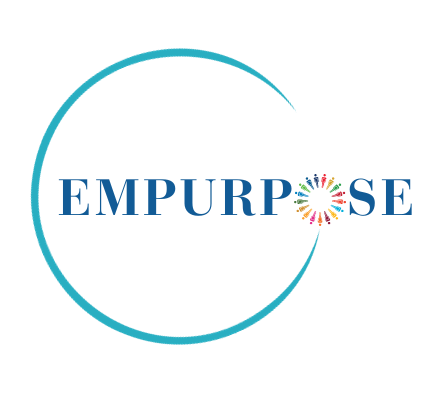What existential crisis can teach us about career purpose
Do any of you watch the show “The Good place”? If you are interested in the philosophy of life and death, give it a try.
Not to discuss the storyline and all characters, what I enjoyed the most was the discussion about ethics, morality, and existential crisis.
(SPOILER ALERT!!!) A devil named Michael at the beginning of the show was really a good employee – being a true atrocious merciless devil for the torturing department of hell. He treated others terribly and had no motivation to change his behaviors. What is the point of being a good person or living up a good name if I’m immortal – he might say. In other words, there will be no consequences or punishments for things he has done. But at the moment he knew that he himself can die, (in the movie, it’s called “retirement”- when a devil’s soul “will be disintegrated and each molecule will be placed on the surface of a different burning sun…”), his life now has an end. He started to experience an existential crisis, which eventually led to changes in his behaviors, and indeed he changed his career too (from a devil to more of an angel).

Existential crisis
According to the American Psychological association dictionary, an existential crisis happens when an individual “is faced with finding meaning and purpose in life and taking responsibility for his or her choices”. For me, it’s when people start to be aware that life has an end.
Let’s take a step back, I think there are 3 types of people when it comes to existentialism.
The first group takes life too seriously, like a competition. They are restless, always feel like they are running out of time. They force themselves to run, to chase, lots of times not knowing what they are chasing after. That lack of introspection and a compass causes them to go astray.
The second type, they don’t even believe in human existence – they believe that nothing in the world has a real existence and that life is meaningless. This viewpoint is in fact nihilism.
The last group, people who embark on the journey of spirituality – which by the definition of Healthcare committee at Mayo clinic – “is a dynamic process that helps individuals discover meaning and purpose in their lives, even in the midst of personal tragedy, crisis, stress, illness, pain, and suffering.”
Reaction and Passive/active attitude
Do you know what is common between that devil Michael, near-death experiencers, and 9-enders*? They all experience some sort of existential crisis. What else? They all passively wait for it to come. It’s only when people are shown the ending of life that they start to live their life differently. The spiritual group is different in a way that they proactively prepare for that. They seek inner wisdom. They seek both internal and external help.
*If you are not familiar with the term “9-enders”, it is used by Daniel Pink in the book “When – the scientific secrets of perfect timing” to describe people “in the last year of a life decade…at ages of 29, 39, 49… . 9-enders are preoccupied with aging and meaningfulness…..search for or crisis of meaning”.
Covid as an existential crisis and a search for career purpose
An OECD research on career guidance for Canadian adults reveals a very interesting point: the majority of Canadian adults who use career guidance services are unemployed. Yes, not employed workers. And the biggest reason for that (almost 50%) is “did not feel the need to”. Yet the Great Resignation which has started at the beginning of Covid is screaming a different story – employed workers at risk do need career guidance. The majority of people voluntarily resigning during Covid want to find something that brings them a sense of fulfillment in their career. I couldn’t think of a better term than career purpose. Did Covid trigger their existential crisis which eventually triggers the search for career purpose?
Being a human means sooner or later we will experience some forms of existential crisis: a big change in life, a resignation, a laid-off, a divorce, a breakup, move to another country, Covid…or simply just being hit by aging like those 9-enders. If sooner or later these questions will come to the surface “What really is the meaning of life? Why do you work? Why do you live?” Should we choose to answer them now? And how do we do that?

In the book “Man’s search for meaning” by Victor Frankl, he compared the question “what’s the meaning of life” with a question to a chess champion “Tell me, Master, what’s the best move in the world?”. There is no specific answer for that. The only way to answer is by being responsible. In other words, taking responsibility for your life. No one else will do that. Interestingly it’s also the answer for the foundation of happiness. Taking responsibility means getting out of the victim mode, according to Marci Shimoff. Only when you stop blaming, shaming, and complaining, you are being responsible and ready to find the meaning of life.
Are you gonna wait until the school of life throws at you some very difficult exams to be more responsible with your life? Or are you gonna proactively design a more meaningful life and career starting from now?
Of course, the answer is up to you. What’s your threshold of suffering?
References:
1. Pink, D. H. (2019). When: The scientific secrets of perfect timing. Penguin.
2. Frankl, V. E. (1985). Man’s search for meaning. Simon and Schuster.
3. Shimoff, M., & Kline, C. (2009). Happy for no reason: 7 steps to being happy from the inside out. Simon and Schuster.
4. Richard Leider. Is purpose spiritual? Retrieved Jan 23rd, 2022, from Is Purpose Spiritual? | Richard Leider
5. APA Dictionary of Psychology. Existential crisis. Retrieved Feb 23rd, 2022, from APA Dictionary of Psychology
6. OECD. Career guidance for adults in Canada. Retrieved Feb 28th, 2022, from Career Guidance for Adults in Canada | en | OECD




2 Responses
Wow awesome! I like the part u wrote about the 3 types of people ! Sounds like I’m definitely one of them. Great job!
Thank you Peggy :). I’m glad you enjoyed it. Absolutely, having awareness on what type we are is the very first step to design our next action.
Warmly,
Tam